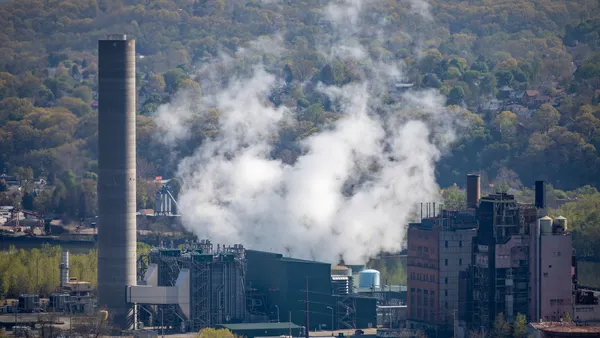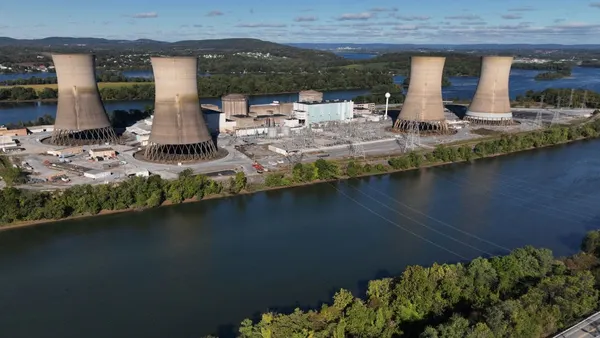Dive Brief:
- The closing of Entergy's 604-MW Vermont Yankee nuclear facility could alter the region's generation fuel mix, requiring a range of power solutions and possibly additional transmission, according to the U.S. Energy Information Administration.
- Vermont Yankee accounted for 4% of New England's total electric generation and more than 70% of generation in Vermont.
- Additional fossil-fuel generation may be needed, as nuclear units in the region are already running at about 90% capacity.
Dive Insight:
Vermont Yankee was the fifth-largest generating facility in New England, and its closure last year will have a significant impact, EIA said. The facility shut down in December, facing a challenging power market and lower prices at the hands of cheap natural gas.
According to the EIA, the region has a range of options to replace that power, but additional generation would likely come in the form of coal or gas. The four nuclear units now active in New England already operated at an average capacity factor of just over 90% in 2014, EIA said, based on data through October.
"Since renewable sources generate power only on a variable basis, any additional generation will likely have to come largely from natural gas-, coal-, or petroleum-fueled units," EIA said. "Electricity demand could also be lowered through increased energy efficiency and demand response programs to make up for the generation lost as a result of the retirement of generating units. "
New England could also import more electricity along its existing transmission connections to neighboring electricity grids in Canada and New York, EIA said. Power imports met 14% of New England' demand in 2013.
Another option is to expand transmission capacity into New England, EIA said.
The Northern Maine Independent System Administrator traditionally has had more generating capacity than needed and is isolated from the rest of New England, with ties only to Canada. The grid is considering ways to access the New England electrical grid directly, which would add generating capacity for the New England market.
Hydro-Quebec is also in the approval process with its Northern Pass transmission project, which could flow up to 1,200 MW into New England.















